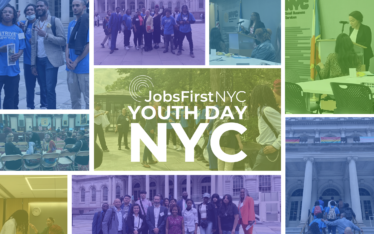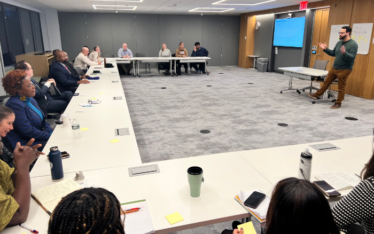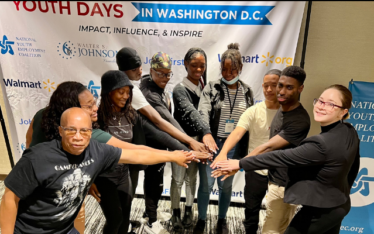Nonprofit organizations and their employees are the essential workers no one acknowledges. Since the pandemic began in early March, they have continued their work without pause, risking their lives to tend to their clients’ needs. Yet despite their sacrifices, the federal government has neglected to provide them with the support they need in federal stimulus packages to date—leaving these workers without personal protective equipment, the resources to purchases this equipment, and the essential funding to keep their doors open.
Nonprofit organizations that focus on providing critical direct services to children, teens, young adults, and families have been exposing themselves to COVID-19 at the same level as hospital workers. They are, for example, providing critical support and services to victims of intimate partner abuse, entering the homes of clients to meet with families and children, and delivering food in low-income and marginalized communities. Despite their best efforts to follow standard protocol, the truth is that in the communities where they work, there is a great deal of misinformation surrounding COVID-19 and how it spreads. This lack of information substantially increases their vulnerability.
With federal resources, nonprofit essential workers could continue to provide social services to their clients while ensuring the safety of their clients, their loved ones and themselves. Inclusion in the federal stimulus package will help them provide essential services to their clients, many of whom will encounter increased challenges as they strive to recover from the pandemic.
Recently, I hosted a roundtable discussion with twelve nonprofit executive directors across New York City, and their stories were devastating. One organization leader drove five hours to pick up personal protective equipment for her staff members. She explained, “When members of my staff have lost three or more of their own family members and are still showing up for work because they know their clients need them, I have a moral responsibility to tend to their safety and protection.” While her actions are admirable, we should not and cannot expect organizational leaders to pay for these resources out-of-pocket. It is negligent and unsustainable.
JobsFirstNYC’s latest report, The Early Impact of COVID-19 on Young Adult Workforce Development: Insights from the Field, outlines 7 insights from the non-profit young adult workforce development system, 3 emerging questions, and 7 recommendations. With an uncertain labor market that will likely put young adults at the back of the line to getting a job and as non-profits are forced to do more with less, the number of young adults who are out-of-school and out-of-work is expected to skyrocket, further threatening the economic security of an entire generation.
In the United States, nonprofit organizations make up about 42% of private employment in the social assistance sector. In 2016, 332,000 professionals were employed in the nonprofit social assistance sector in New York State, with 180,000 of them in New York City. But these are not just numbers—these are the thousands of individuals that provide essential services to the country’s most at-risk communities.
SCO Family Services, which has 84 programs serving 60,000 New Yorkers each year, shared that at least 30 of their workforce became infected with COVID-19. In Brownsville, Community Board 16 had to close their food pantry because it no longer had any food to offer. Separately, Commonpoint in Queens had to furlough 300 employees. While we know unemployment is rising across the country, we cannot afford to lose these essential workers on any given day, much less in times like these.
Nonprofit organizations function as small businesses, operating with extremely tight budgets and lacking the capacity to deal with unexpected costs—meaning that many of these organizations were already one crisis away from closing their doors. Given their ongoing reliance on government aid and fundraising, there was nothing that could have prepared nonprofits for the devastation that has been caused by COVID-19.
Without the help of federal aid, many nonprofits will be forced to close permanently or consolidate services. Both are devastating consequences given the needs of the communities they serve, and will only continue to expand in the aftermath of the pandemic. Nonprofit providers are needed to fill critical gaps left by government services and support.





